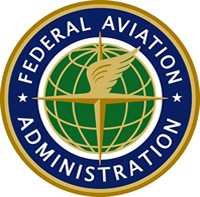So here we are. One of the worst summers on record for delays is
headed for aviation's history books. Total delays are up 19 percent
from where they were last summer.
And now Labor Day is just around the corner. One trade group
[the Air Transport Association -- Ed.] predicts that 15.7 million
people will take to the skies for the last gasp of summer. That's
an increase of almost 3 percent from the year before.
As bad as this summer has been, over the last few months, we've
made some nice headway in chipping away at some of those hellacious
delays.
Let me tell you about two in particular.
The first is called adaptive compression. It's a computer
program that constantly scans for airport slots when we're running
traffic management programs. You know, one of the most frustrating
things for the airlines is when a slot goes unused. It's capacity
you can't recover.
And it's common for slots to open up whenever flights are
cancelled, delayed or re-routed. The problem is, the carriers had
no way of knowing which slots were freed up for someone else to
use.
Well, now we have adaptive compression to do the job. It made
its debut back in mid-March, and I have to say, the results have
been huge.
Between April and July, this technology reduced delays by more
than 863,000 minutes. In terms of costs, the airlines could save
$35 million a year in fuel and other operational expenses.
 Here's something else
that made a difference this summer -- airspace flow programs.
Here's something else
that made a difference this summer -- airspace flow programs.
As you know, they're traditionally used to manage delays in
severe weather. For the first time, we expanded it in response to
congestion. I tell you, this is a game-changer.
We've added 11 new locations, distributed throughout the center
of the country. They'll help us move traffic through constrained
areas — traffic destined to many major metropolitan areas in
the eastern half of the US.
Last summer, we implemented 36 airspace flow programs on 19 days
from June through August. We saw a 21 percent reduction in delays
from what would have been if we hadn't used this tool.
This summer, we've added more AFPs. It's too soon to tell what
the exact figures on delay reductions will amount to, but I can
tell you that we expect them to be even greater than in '06.
What we're doing with AFP is giving airlines the choice of
accepting an expected departure time or a longer route around the
storm. This provides flexibility. This provides the passenger with
a more dependable schedule.
As bad as it was, I don't want to think about how much worse the
delays would've been without these improvements I just
mentioned.
Yet despite the progress we're making, our air traffic system is
still not even close to what it needs to be — what the flying
public demands it should be. The system's too old and it's not
nimble enough for today's activity. I'll underscore that this is
why we need to move to a system for the next generation, NextGen.
This is the modernization step we need to take.
The question always remains how to pay for it. With the FAA's
taxes set to expire one month from today, the sand in the hour
glass is quietly and quickly running out.
Once again, it's time for Congress to pass a reauthorization
measure that does for aviation what's never been done before
— ties the FAA's revenues to the cost of doing business. Let
me tell you, if we don't get that, the improvements will sputter
along, the delays will only get worse, and every weekend will feel
like Labor Day.
Thank you.
 SpaceX to Launch Inversion RAY Reentry Vehicle in Fall
SpaceX to Launch Inversion RAY Reentry Vehicle in Fall Aero-News: Quote of the Day (04.23.24)
Aero-News: Quote of the Day (04.23.24) Aero-News: Quote of the Day (04.20.24)
Aero-News: Quote of the Day (04.20.24) ANN's Daily Aero-Linx (04.20.24)
ANN's Daily Aero-Linx (04.20.24) Aero-News: Quote of the Day (04.21.24)
Aero-News: Quote of the Day (04.21.24)




